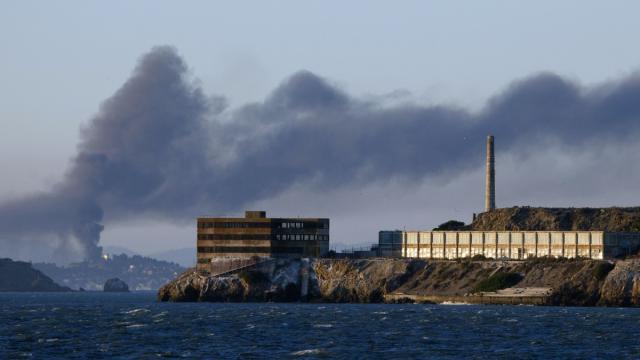
“The Chevrons of the world, the Koch Brothers and the others… their religion is greed … we cannot allow them to take over Richmond,” Vermont Senator Bernie Sanders told a packed auditorium in Richmond, Calif., last month. Sanders’ appearance drew national attention to local races there that have since become a symbol of the tension between grassroots politics and big money’s influence on elections.
And last Tuesday, this city of more than 100,000 garnered national headlines when it became one of the few spots in the country where progressive underdogs triumphed, even though they were heavily outspent by their opponents.
Here the battle lines were defined by one big donor, the multinational oil giant Chevron, which operates a century-old refinery in Richmond. Candidates who had accepted backing from Chevron fought an alliance of progressives who had not.
The company spent more than $3 million on the Richmond election. But voters there rejected the candidates Chevron supported in favor of a scrappy, volunteer-driven coalition that included Richmond’s current mayor, a soft-spoken former schoolteacher and Green Party member named Gayle McLaughlin who ran for city council this year after reaching the end of term limits.
Also among the winners were Jovanka Beckles, the openly gay vice mayor who successfully championed a higher minimum wage there; Eduardo Martinez, also a former teacher; and longtime local politician Tom Butt, who won the mayoral seat. Now up to six of the city’s seven council seats may soon be occupied by Chevron critics, according to the Contra Costa Times.
For years, Richmond was known in the San Francisco Bay Area simply as a hub of high crime, pollution, and poverty. Politicians here had unabashedly close ties to Chevron — until 2008, most local elected officials were sympathetic to the company, which maintained a desk in the city manager’s office through the 1990s.
But city politics began to change in 2004, when McLaughlin won a city council seat and then, two years later, became mayor.
The city has since risen into the national spotlight several times, partly because of McLaughlin’s willingness to take on Chevron, which is Richmond’s largest taxpayer and employer. Last year, the city sued the refinery after a 2012 fire sent thousands to area hospitals complaining of respiratory problems. “We don't see Chevron as the source of keeping our economy going,” McLaughlin said defiantly at the time.
In response, Chevron has gone to great lengths to try to regain public sympathy, and to oust its opponents from local office. Earlier this year, the company launched its own online news outlet, the Richmond Standard, which offers both daily stories on local events and a section called “Chevron Speaks,” where the company posts its views.
In the weeks before the election, the company plastered local billboards and stuffed residents’ mailboxes with ads attacking McLaughlin and her allies and supporting candidates backed by Moving Forward, one of its Richmond-based political action committees.
But there were signs in the days before the election that such campaigning had backfired. Vandals spray-painted the campaign sign for the pro-Chevron mayoral candidate, Nat Bates, with the words “Paid For By Chevron.”
“We were getting full-page and multiple-page, full-color mailers, six or seven a day. They were hit pieces,” said Doria Robinson, who supported the progressive candidates and who runs a Richmond-based community gardening organization. “I not only think it turned off voters. I actually think it inspired voters to come out and take a stand against the attempt to buy our elections.”
Last Wednesday, Chevron spokesman Braden Reddall released a statement pledging that the company would work with the new city council to promote "economic opportunities for all residents."
"The voters have spoken, and Chevron will work hard to find common ground with this city council to push for sound policies that allow Richmond to grow and thrive," wrote Reddall.
To locals, the progressive wins here may signal a shift in both the city’s economy and identity. Richmond regarded itself as a Chevron company town for many generations, but in the past several years, both McLaughlin and the city manager have sought to lure new high-tech and green businesses to the city.
Across the country, this small, local election represents something larger. Among environmentalists, the Richmond election is a sign of hope at a time when both the oil and gas industry and wealthy conservative donors held significant influence over other races. According to OpenSecrets.com, the oil and gas industry spent nearly $75 million to sway the 2014 elections.
Activist and writer Naomi Klein called the Richmond progressive victories a “piece of good news,” and the environmental group 350.org called Richmond a “bright spot” and a lesson that “courage counts.”
3 WAYS TO SHOW YOUR SUPPORT
- Log in to post comments











